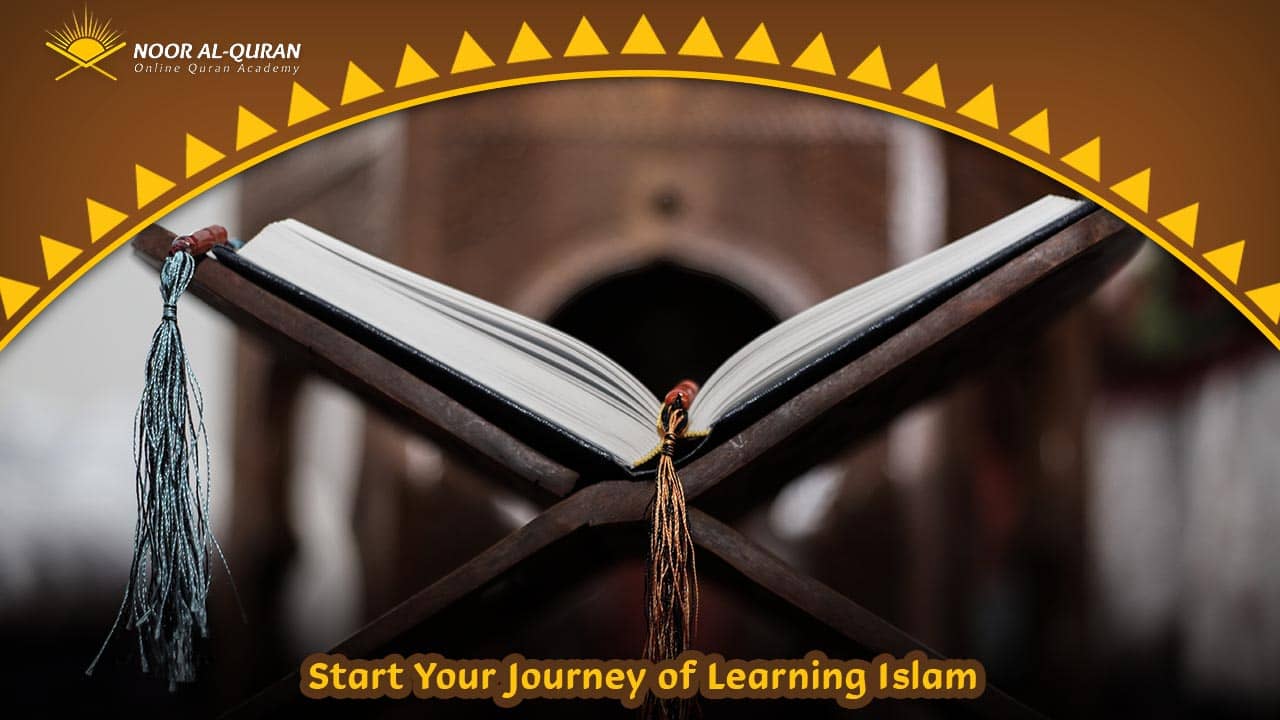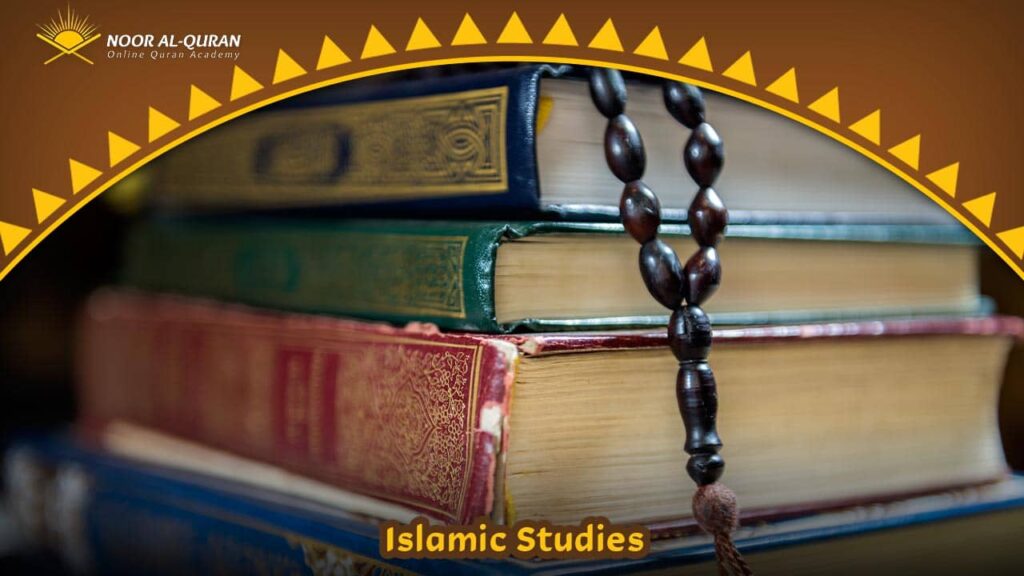Islamic Studies U.K is a profound and dynamic field that explores the faith, history, ethics, and intellectual traditions of Islam. At Noor Quran Academy, we offer a comprehensive approach to Islamic education that not only teaches the fundamentals but also encourages personal reflection and spiritual growth.
More than an academic pursuit, Islamic Studies is a journey that deepens one’s understanding of the Quran, Hadith, Islamic law (Fiqh), and the guiding principles of Muslim life.
In an increasingly globalized world, studying Islam helps bridge cultural gaps and provides essential insights into the values, traditions, and contributions of Muslim societies throughout history.
Whether you’re a new learner or seeking to expand your existing knowledge, Islamic Studies at Noor Quran Academy offers a meaningful path to connect with faith and explore the shared human values rooted in Islamic teachings. In this article, we will explore the core areas, levels, and modern relevance of Islamic Studies.
Islamic Studies: Importance, Branches, Levels, Types, and More

Islamic studies encompass all academic fields related to Islam, including the Quran, Hadith, Fiqh (Islamic law), and more. These disciplines guide individuals in their pursuit of knowledge, which is regarded as an act of worship.
Islamic education can be pursued both online and offline, with institutions like Riwaq Al-Quran offering courses in Quran recitation, Tajweed, and Islamic ethics. The study of Islam not only strengthens faith but also enhances one’s understanding of its teachings, promoting personal growth and moral conduct.
Islamic studies represent a vast ocean of knowledge with many branches to explore. Seeking knowledge in these fields is considered one of the most noble deeds in Islam, as it is viewed as a continuous act of worship to Allah.
As Allah Almighty says: << وَقُل رَّبِّ زِدْنِي عِلْمًا >> “And say, ‘My Lord, increase me in knowledge.'”
For those eager to learn, here is a simple guide to Islamic studies and what they entail.
Learn also:
Learn Quran Online For Beginners
Start Your Quran Journey with Noor Quran Academy Today!
Unlock the beauty of the Quran with personalized, one-on-one online lessons designed just for you.
Our experienced tutors will guide you step-by-step to master Tajweed and Quranic recitation.
Don’t wait — join thousands of learners worldwide and begin your spiritual growth now!

Meaning of Islamic Studies
“Islamic studies” refers to any academic field related to the study of Islam. Knowledge is the foundation of Islam, which is why various fields of study exist to understand Islam from all aspects. These disciplines are not entirely independent; rather, they are interconnected, with Islam as the common thread. Therefore, it is essential to have an understanding of each field in relation to one another.
Islam places great emphasis on studying, learning, and acquiring knowledge as part of its core values, since following the Truth is essential in Islam. It is not necessary to study Islamic studies at a university, but it is vital to study under knowledgeable and reputable scholars of Islam.
Read also: learn quran online usa
Types of Islamic Studies
Islamic education can be pursued in various ways. You can start your journey of learning Islam either online or offline.
- Online Learning: Institutions like Noor Al-Quran offer various courses for different levels. Online education provides flexibility, allowing you to learn at your own pace, regardless of your location. However, a potential downside of online self-learning is that you may feel isolated or unmotivated after a while. Hence, having a mentor and following a structured curriculum can help maintain discipline and accountability.
- Offline Learning: Learning in traditional settings like Masjids, Islamic centers, or institutes is another great way to pursue Islamic education. This method eliminates distractions, allowing for a more focused learning experience. However, this approach may not be viable in areas where there are no nearby institutions or where the timing is inconvenient.
Scope of Islamic Studies
Islamic studies cover a wide range of topics, including Islamic scripture, creed, history, civilization, laws, and ethics. It also encompasses social studies, the Arabic language, comparative religion, and more. Through the study of Islam, one gains a comprehensive understanding of the faith, strengthening both belief and the connection with Allah.
Do not be discouraged by the vastness of Islamic knowledge; every bit of new learning is valuable.
Five Objectives of Islamic Education
When embarking on the path of Islamic education, it’s important to keep in mind the following five objectives:
- To please Allah by learning His guidance.
- To seek the Truth and understand its evidence and the methods of reaching it.
- To better oneself with the knowledge gained.
- To practice and apply Islamic teachings in daily life.
- To teach others what you’ve learned and spread the Truth of Islam.
It is crucial to avoid the following negative intentions
- Do not seek knowledge to boast or gain titles.
- Do not study to seek praise from people.
- Do not study with the intent of arguing or debating.
This advice was given by Luqman the Wise to his son and is also echoed by the Prophet (peace be upon him).
Branches of Islamic Studies
Islamic Studies is a comprehensive discipline made up of several key branches that together shape a complete understanding of the faith. These branches are essential for anyone seeking to live by Islamic principles and deepen their connection with the religion.
Tafseer (Quranic interpretation) helps learners explore the meanings and context of Quranic verses, bringing clarity to Allah’s words.
Hadith involves studying the sayings and actions of the Prophet Muhammad ﷺ, offering practical examples of how to live by the Sunnah.
Aqidah focuses on core beliefs, especially Tawheed (the oneness of Allah), forming the foundation of Islamic faith.
Fiqh teaches the rules of worship, daily life, and ethical conduct according to Shari’ah.
Tazkiah emphasizes inner purification and good manners (Adab), fostering spiritual growth and strong character.
At Noor Quran Academy, our programs help students explore each of these pillars of Islamic Studies with clarity, depth, and purpose. Let’s discuss each branch in more detail.
Studies of the Quran (Tafseer)
The study of the Quran is one of the most significant branches of Islamic studies. As the primary source of divine guidance, understanding the Quran is among the noblest pursuits in life.
Several sub-fields are involved in Quranic studies, including learning the Arabic language (which is essential for both memorization and comprehension), memorization of the Quran, and mastering Tajweed and Qira’at. Additionally, the study of Tafseer (Quranic exegesis) opens up deep insights into the wisdom and context of the Quran.
Noor Al-Quran specializes in Quranic studies. Start your journey today by exploring their courses.
Studies of the Sunnah (Hadith)
Ilm Al-Hadith (the science of Hadith) is a vital field of Islamic studies, regarded by many scholars as the “science of geniuses.” Hadith studies cover the validation and interpretation of the sayings and actions of the Prophet Muhammad (peace be upon him).
The process of Hadith validation is highly detailed and unique to Islam, ensuring the authenticity of the sayings. This level of meticulousness in preserving the words of the Prophet provides Muslims with solid, reliable sources of guidance.
Studies of Aqidah (Tawheed)
Aqidah refers to the core beliefs in Islam, particularly Tawheed (the belief in the oneness of Allah). Islam teaches that belief in God’s oneness is the foundation of the faith, and everything in Islam revolves around this central belief.
Aqidah is one of the most important aspects of Islam, as it forms the basis of all actions. It’s essential for Muslims to understand the proper methodology of belief, which involves seeking evidence before forming conclusions.
Studies of Fiqh (Shariah)
Fiqh refers to the understanding and application of Islamic law in daily life. While Aqidah focuses on beliefs, Fiqh is concerned with actions. It covers every aspect of life, providing guidance on how Muslims should behave and act according to Allah’s will.
Fiqh is essential for understanding how to live a life that aligns with Islamic principles. Scholars dedicate their lives to answering complex legal questions for the broader Muslim community.
Studies of Tazkiah (Adab)
Tazkiah refers to the purification of the heart, while Adab deals with manners and behavior. Both are crucial in the life of a Muslim and are necessary for spiritual growth. The study of Tazkiah and Adab helps Muslims lead a morally upright life and purify their inner selves.
Scholars have written extensively on this topic, and many books focus on improving one’s behavior and internal state. Modern concepts of Islamic psychology often stem from these traditional studies.
Levels of Islamic Education
Islamic education is generally categorized into three levels:
- Beginner Studies: Introductory levels that provide a general understanding of basic Islamic concepts.
- Intermediate Studies: More detailed study of Islamic fields, aiming to provide a deeper grasp of various subjects.
- Advanced Studies: In-depth study of specialized areas, preparing individuals to become scholars in the field.
Importance of Islamic Studies
Seeking knowledge is a fundamental value in Islam. Knowledge illuminates the path from darkness to light, and the pursuit of Truth is itself a noble goal. Islamic studies are essential for understanding Islam and are considered one of the most revered forms of worship.
By studying Islam, you begin a journey of enlightenment and gain clear guidance to walk the path of Allah.
Start Your Journey of Learning Islam

Begin your learning journey today with Riwaq Al-Quran, an online platform offering personalized courses in Quranic studies, Arabic, and Islamic education. Whether you’re looking to study online or offline, Riwaq Al-Quran provides the tools you need to deepen your understanding of Islam.
In conclusion, Islamic Studies is more than just an academic pursuit; it is a gateway to understanding the profound wisdom and guidance found within Islam.
From its foundational texts like the Quran and Hadith to its practical applications in law, ethics, and spirituality, the study of Islam offers essential insights into both the religion and the islamic culture it has shaped.
As individuals continue to seek knowledge, Islamic Studies provides the tools for personal growth, intellectual development, and a deeper connection with the Divine.
Whether online or offline, through self-study or mentorship, the pursuit of Islamic knowledge remains one of the most rewarding journeys one can undertake in both this life and the hereafter.
Embracing this knowledge not only enhances one’s faith but also contributes to a more enlightened, compassionate, and harmonious world.
Read also:

